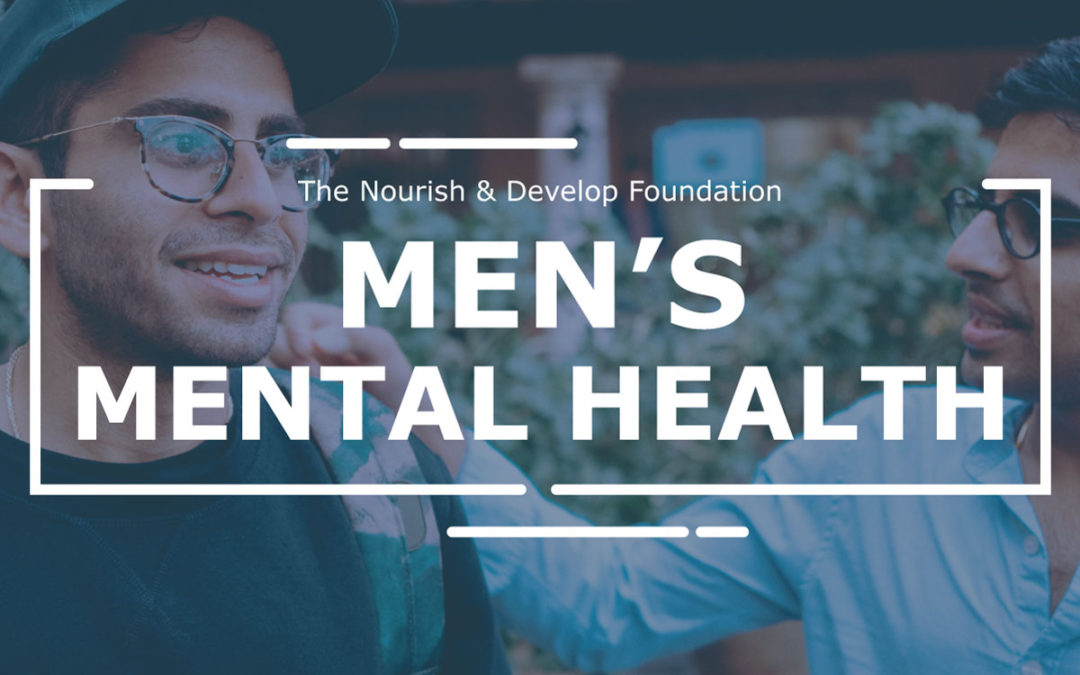Today is the final day of Mental Health Awareness Month!
We hope you have seen more mental health representation, learned about new resources, and will continue to prioritize your mental health and follow along with us. Today we want to put the spotlight on those who identify as men and discuss the unique experiences that are associated with this gender in the context of mental health and mental illness.
If mental health is for everyone, why are we highlighting men?
We know that there is still stigma attached to talking about mental illness, and unfortunately this stigma is even greater for men than the general population. Society places certain social expectations upon men, such as sharing feelings being a sign of weakness. The pressure men face to conform can prevent them from reaching out for the help they need.
1 in 5 men
will develop alcohol dependence in their lifetime
Men die from suicide at approximately
3.5 times the rate that women do
Depression, Anxiety, Bipolar Disorder, Psychosis and Schizophrenia, and Post Traumatic Stress Disorder
are some of the most common mental illnesses among men
Distinctive features
While mental illnesses are universal diagnoses, they can be expressed differently among genders. For instance, men who are experiencing depression are generally more likely than women to show any of the following symptoms:
- Increase in alcohol and substance use
- Avoiding family or social situations
- Engaging in risk taking behaviour like gambling or reckless driving
- Feelings of anger, frustration, aggression, and irritability
- Finding it hard to keep up with work or family responsibilities
- Spending an obsessive amount of time on work or sports
- Becoming more controlling or abusive in relationships
Men also tend to exhibit physical changes, such as:
- Headaches
- Tightness in the chest
- Digestive problems
- Joint, limb, or back pain
- Fatigue
Men may be more comfortable acknowledging and describing the physical symptoms they are experiencing, but this can lead to mental health problems going undiagnosed.
Toxic masculinity
A great deal of why men are so stigmatized by mental health is due to how our society perpetuates toxic masculinity. Toxic masculinity refers to rewarding men for conforming or holding men to exclusively traditional male stereotypes of acting tough, suppressing emotions, physically strong, and dominant. If men do not possess these traits or behaviours, they are thought of to be weak, feminine, or inferior. We are taught this messaging through media, peers, and passed through generations.
“Boys will be boys!”
“Real men don’t cry!”
“Be a man!”
Are examples of common phrases that encourage and excuse men for being bullies, abusers, and misogynistic. This is harmful because men are not accepted for who they are and put their health at risk when they try to push through pain without seeking treatment, turn to unhealthy coping mechanisms like substances, and actively hide their symptoms.
HOW can we support men?
Be mindful of your interactions with boys and men and how you talk about them. Don’t punish or put down emotional expression, and avoid aggressive and critically charged phrases like ‘Man Up!’. Rid yourself of any expectations you hold about what a man should be. Point out when something is wrong (like violence) and reward helping behaviour. Communication is key, especially for men. They are taught to show, not tell. Practising healthy communication helps break the cycle of toxic masculinity.
Familiarize yourself with information, language, and signs of stress and mental illness that pertain to men, like what is outlined in this blog. Doing so can help to shed some light on what they may be going through, how to communicate and best reach them, and to better understand what you can do to help. Despite the push for awareness, mental health (especially for men) ius still considered taboo. Helping to end stigmas can be as simple as asking for help when you need it.
Practice opening up about your feelings, invite sharing, offer a listening ear, and point out resources. This could look like “I’m feeling a little anxious today. I find deep breathing helps, I even have this free app called Headspace that has a visual guide on how to do it. I’ll send it to you! How are you?” It is also beneficial to promote healthy behaviours like balanced eating, physical activity, and good sleep, so ask a guy friend to be workout buddies to keep one another accountable or take turns cooking with your brother.
Sources:
https://www.medicalnewstoday.com/articles/324312#men-and-depression
Resources:



